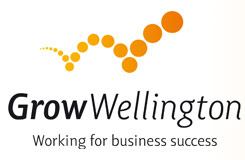Innovation, incubation and competitiveness are firmly back on the political agenda. 2011 has been a busy year, with the government setting about reforming publicly funded scientific research and reconfiguring IRL in an effort to drive more commercialisation activity in the technology sector. The government funded trade agency has also been talking up successes from its incubator programme. In the meantime, the recently formed Productivity Commission has quietly begun developing an academic framework to address infrastructural inefficiencies in the New Zealand economy.
In this context, it was unsurprising to see some recent commentary that was highly critical of the manner in which government gets involved in innovation and business. More specifically, Rowan’s comments alluded to some deficiencies in the methodologies being employed by business incubators when advising software start-ups. Notwithstanding the fact that incubators are generalists and lack the huge depth of experience and background of success that Rowan brings to his own web and software ventures, there were some fair criticisms which pleasingly generated a lot of intelligent follow-up discussion.
Where I parted company with this debate however was when the tone shifted towards questioning the necessity for providing events to engage the start-up community. Most readers will be aware that I’m deeply involved in organising such activities in addition to my role as a co-founder of a couple of tech companies. One of these companies is pre-revenue start-up, the other is growth phase and profitable. Being involved in the community is a deliberate strategy which is partly altruistic (because it’s fun), but also good for business. We are only as strong as the people around us.
The government’s moves to redefine how we approach identifying and commercialising high value science and technology based ventures are oxygen for our economic flame; so too are the various contributions made by formal incubators, informal “innovation hubs”, university commercialisation offices and the various business related events and competitions. The Ministry of Science & Innovation’s report on Powering Innovation even talks about “…the creative connection of talented minds across discipline boundaries“. We do not need to emulate Silicon Valley, but we should learn from that ecosystem model.
Around the world, entrepreneurship is increasingly seen as both a legitimate career option for young people and a growth spark in an otherwise dull economy. At a time when youth unemployment stands at around 30% in New Zealand, we cannot afford to ignore the opportunity of infusing young people with an entrepreneurial spirit. I recently attended the 30th anniversary celebration of the Young Enterprise Trust. This organisation provides entrepreneurship programmes for high schools and counts such luminaries as Rod Drury and Seeby Woodhouse amongst its alumni, demonstrating the importance of a community approach to entrepreneurship education.
Building an entrepreneurial and export focused culture has never been so important as now, with traditional models breaking down faster than ever. Knowledge sharing and relationship building within and amongst our specialist communities is foundational to strengthening our innovation ecosystem. We can no longer afford to operate in silos or to make the assumption that there is only a single approach to building cool businesses that solve real problems and generate economic returns.


 Unlimited Realities is living up to its name. Last year the company inked a deal to provide its gestural interface software for integration into Dell manufactured computers. Now the door has been opened by computer chip maker AMD. Fingertapps was
Unlimited Realities is living up to its name. Last year the company inked a deal to provide its gestural interface software for integration into Dell manufactured computers. Now the door has been opened by computer chip maker AMD. Fingertapps was  Plastic Logic, a company founded to commercialise research from Cambridge University recently secured one of the largest venture capital funding rounds of any company globally. But it has not always been plain sailing for the business which aims to devise and manufacture consumer applications for plastic semi-conductors based on organic polymers.
Plastic Logic, a company founded to commercialise research from Cambridge University recently secured one of the largest venture capital funding rounds of any company globally. But it has not always been plain sailing for the business which aims to devise and manufacture consumer applications for plastic semi-conductors based on organic polymers. Over the last year or two I’ve learnt a lot about banks and especially the ways in which they don’t serve their customers. When are we going to build a technology that solves this pain?
Over the last year or two I’ve learnt a lot about banks and especially the ways in which they don’t serve their customers. When are we going to build a technology that solves this pain? Ever since the movie Minority Report hit our screens we’ve all been fascinated by the promise of touch screen technology. I think touch tech is going to be big this year, which is one reason why I’m currently working with a young entrepreneur on an interesting project involving tablets. More about that soon. In the meantime, there are other companies in New Zealand that are already well advanced in this field.
Ever since the movie Minority Report hit our screens we’ve all been fascinated by the promise of touch screen technology. I think touch tech is going to be big this year, which is one reason why I’m currently working with a young entrepreneur on an interesting project involving tablets. More about that soon. In the meantime, there are other companies in New Zealand that are already well advanced in this field.



 Global Entrepreneurship Week has rolled around already and Unlimited Potential is once again doing it’s bit to promote technology entrepreneurship as a career option. I’ll be working hard this week on a few last minute details for our
Global Entrepreneurship Week has rolled around already and Unlimited Potential is once again doing it’s bit to promote technology entrepreneurship as a career option. I’ll be working hard this week on a few last minute details for our